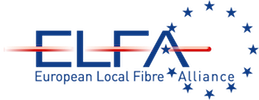Relevant and Upcoming European Telecom Legislation: Quick Overview
This page provides a compact yet comprehensive reference to the main and upcoming European legislative instruments shaping the telecom and broadband markets. It helps professionals, policymakers, and stakeholders understand how EU rules and proposals influence connectivity, investment, and regulation across Member States.
European Electronic Communications Code (EECC)
The EECC consolidates and modernises the EU telecom regulatory framework. It covers market analysis, consumer rights, universal service obligations, access to networks, and spectrum management. National Regulatory Authorities (NRAs) implement and enforce these principles at the national level.
- Topics: market regulation, access obligations, consumer protection, universal service.
- Relevance: defines competition remedies, investment conditions, and rights of access for operators.
Gigabit Infrastructure Act (GIA)
The GIA replaces and updates the Broadband Cost Reduction Directive. It introduces measures to simplify and speed up network rollouts, encourage civil works coordination, and reduce administrative and cost barriers for gigabit connectivity deployment.
- Goal: support the EU 2030 connectivity targets and remove national deployment bottlenecks.
- Relevance: rules for access to existing infrastructure, civil works coordination, and permit simplification.
Open Internet & Net Neutrality
This regulation safeguards the open internet by preventing undue discrimination, blocking, or throttling of internet traffic. It defines acceptable traffic management practices and the conditions for specialised services, supervised by national authorities and BEREC.
Roaming Regulation
EU roaming rules have abolished extra charges for mobile users travelling within the EU. The framework also sets fair use policies and wholesale rate caps to ensure sustainable implementation for operators and consumers.
BEREC, Spectrum, and Other Instruments
The Body of European Regulators for Electronic Communications (BEREC) publishes guidelines and work programmes that interpret and implement EU rules consistently. Other frameworks include spectrum management decisions, cybersecurity strategies, and the (now replaced) Broadband Cost Reduction Directive.
Upcoming and Emerging EU Legislation
- Digital Networks Act (DNA): A forthcoming framework proposal aimed at redefining the governance of Europe’s digital networks. It is expected to address investment models, cross-border coordination, fair share debates, and the integration of telecom, cloud, and data services under a single connectivity strategy.
- Telecom Omnibus Regulation: An upcoming initiative to streamline existing telecom and connectivity rules, aligning them with the Digital Decade policy and the revised connectivity targets. It is expected to consolidate adjustments to the EECC, spectrum management, and BEREC governance.
- Data Act & Cyber Resilience Act: Though not telecom-specific, both impact connectivity providers by setting rules for data sharing, interoperability, and security compliance across network infrastructure.
- AI and Connectivity Interlink Policies: Under consideration to support the deployment of AI-optimized networks and ensure data flows align with the upcoming European AI framework.
Other Relevant Legal Frameworks
- GDPR: governs privacy and data protection for telecom and digital services.
- ePrivacy Regulation: complementary to GDPR, focusing on confidentiality of communications (still under negotiation).
- Radio Equipment Directive: rules for equipment conformity and CE marking.
- State Aid and Public Procurement Rules: determine conditions for public broadband support and network rollouts.
- Environmental and Planning Directives: affect permit procedures for fibre and tower construction.

